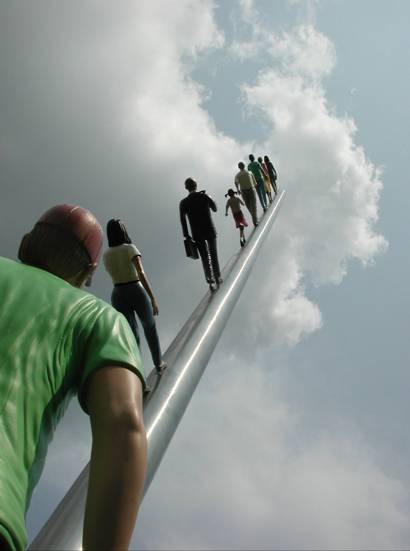 |
| HOME | GLOBAL | DISTRICTS | CLUBS | MISSING HISTORIES | PAUL HARRIS | PEACE |
| PRESIDENTS | CONVENTIONS | POST YOUR HISTORY | WOMEN | FOUNDATION | COMMENTS | PHILOSOPHY |
| SEARCH | SUBSCRIPTIONS | JOIN RGHF | EXPLORE RGHF | RGHF QUIZ | RGHF MISSION | |
|
|
|
|
|
Rotary eClub of the Southwest, USA
A Vision Statement:
Sitting in front of the computer with a conference vision of almost all the members of the Rotary eClub of the Southwest, USA (they kept the name for sentimental reason since it all began in the Southwest in Arizona but now the eClub is truly global in membership and organization). The year is 2020, ten years after being adopted by Rotary International as a legitimate club and not just a novelty which was nice for the computer “geeks” but had no practical purpose to help “landed or locally-based” Rotary Clubs. The growth was phenomenal. Something comes along at the right moment, under the right circumstances, and the tide of the times carries it along.
It was not one idea that carried this growth to fruition. There were some tense times leading up to the decision year of 2010 when Rotary International finally made Rotary eClub permanent parts of the Rotary brother- and sister-hood. Participation had served Rotary eClubs well instead of just attendance. This had always been true of land-based clubs but it was the underpinning of the eClubs.
Rotary had been created as a gathering of talents, skilled organizers, successful leaders in finance, business, government, education, non-profit services and other important community organizations. Whereas the normal community had about 30% skilled workers worldwide (70% in the developed nations), Rotary had a track record of recruiting 100 % of the brightest and best. Once this was recognized by the eClubs, they set up committees of grant writers, business consultants, medical experts, organizational wizards, cultural and international exchange advisors and dreamers (a committee to come up with the next challenge for Rotary). Traditionally, the committees had been bulletin, finance, education, cultural exchange, etc. but all within the club. Now, the eClubs over the globe communicated with each other and shared expertise on these committees to help problem areas of the world that had not been able to catch up with the technology or the speed of growth in this new world. If someone had a special skill or talent they were asked to join a committee, no matter where they lived. This year, again in 2020, it was Africa. The last fifteen years had not changed the problems of education, women’s rights, freedom, poverty, land use recovery, drinkable water and disease. War had not been stamped out.
The meeting today was in conjunction with Denmark and Nairobi on a time-delayed circuit. Some members were not on the virtual web. They were on the ground in that country, after receiving a grant to travel there and work for three weeks with the people who had asked for help and were willing to work to improve the region. It was Service Above Self for this ground force of Rotarians but also Service Without Borders.
Everyone at the meeting was amazed at the progress that had been made since 2006 and knew too how much further they had to travel in virtual and real time/space to solve other needs asking for help. True, eClubs were a permanent reality now but they still had to grow and learn. |
| RGHF Historian Joseph L. Kagle, Jr., 2006 |
